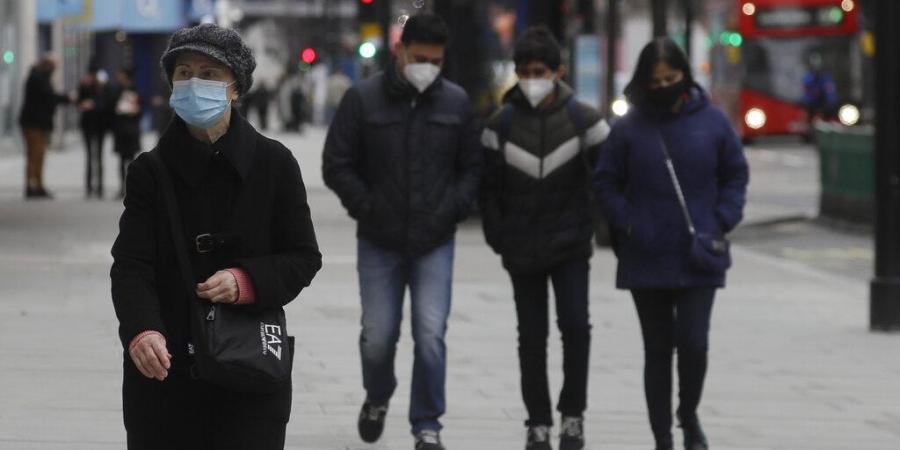 LONDON: Coronavirus infections in England have flattened with an indication of a decline but still remain extremely high, according to the latest findings from a UK government-backed study on Thursday.
LONDON: Coronavirus infections in England have flattened with an indication of a decline but still remain extremely high, according to the latest findings from a UK government-backed study on Thursday.
The Imperial College London and Ipsos MORI Real-time Assessment of Community Transmission (REACT) study into the country’s COVID-19 infections found that the infections in the general population between January 6 and 22 were at the highest level recorded since last year.
It also found that the National Health Service (NHS) is under significant pressure in England with over 37,000 people in hospital with the virus, twice as many as the first peak in April 2020, and 4,076 people are on ventilators, more than at any time in the pandemic.
“These findings are a stark reminder of the need to remain vigilant. Infection rates this high will continue to put a strain on our NHS and add to the significant pressures dedicated health and care staff are already facing,” said UK Health Secretary Matt Hancock.
“We must bring infections right down so I urge everyone to play their part to help save lives. You must stay at home unless absolutely necessary, follow social distancing rules and minimise contact with others,” he said.
The levels of infections recorded by REACT varied across the different parts of England and was highest in London, with one in 35 people infected, and highest nationally among those aged 18 to 24.
It also found that black or Asian people and those living in large households or deprived neighbourhoods were more likely to test positive than others.
Healthcare and care-home workers, as well as other key workers, were also more likely to be infected compared with other workers.
The other key findings from the eighth REACT study from this month shows national prevalence of coronavirus at 1.57 per cent, or 157 per 10,000 people infected.
The national R rate, or the rate at which the infection is transmitted by any one infected individual, is estimated at 0.98 with a range of 0.92 to 1.04 and, therefore, still very high.
“The number of people infected with the virus is at the highest level that we’ve recorded since we began testing last May,” said Professor Paul Elliott, director of the programme at Imperial College London.
“We’re not seeing the sharp drop in infections that happened under the first lockdown and if infections aren’t brought down significantly, hospitals won’t be able to cope with the number of people that need critical care. We all need to stay at home wherever possible and help bring the virus under control and protect our already over-stretched health system,” he said.
The scientists say that while the vaccine programme continues to expand to protect as many people as possible, with over 6.8 million people currently vaccinated in the UK, it still remains unknown whether being vaccinated stops someone from passing the virus on to others.
It will also be some time before the impact of the vaccination programme reduces pressures on hospitals, which makes continued lockdown restrictions critical.
“In the latest REACT snapshot across round 8 we continue to see very high levels of Covid-19 at a national level, which continues to be worrying. While we do see the suggestion of a downturn in the last few days of the study, which is encouraging, this is only tentative,” said Kelly Beaver, Managing Director, Public Affairs at Ipsos MORI.
As part of the study, over 167,000 randomly selected people over the age of 5 from across England volunteered to provide nose and throat swabs for this REACT report.
These were tested for antigens indicating the presence of the virus to show whether someone is currently infected with COVID-19.
The study does not go out to the same participants in each round but selects new, randomly selected participants each time to capture both those who display symptoms and those who do not, providing a greater insight into the levels of infection across the country.
Its latest findings come as the UK surpassed the figure of 100,000 deaths from the deadly virus this week to hit 101,887, leading to tougher international travel measures to keep a tighter check on deadlier new variants of coronavirus in other parts of the world.
Britain remains under a strict stay-at-home lockdown and Prime Minister Boris Johnson told the House of Commons on Wednesday that the lockdown will remain in place through February, with schools reopening as the first signs of normalcy a move not expected before March 8.





